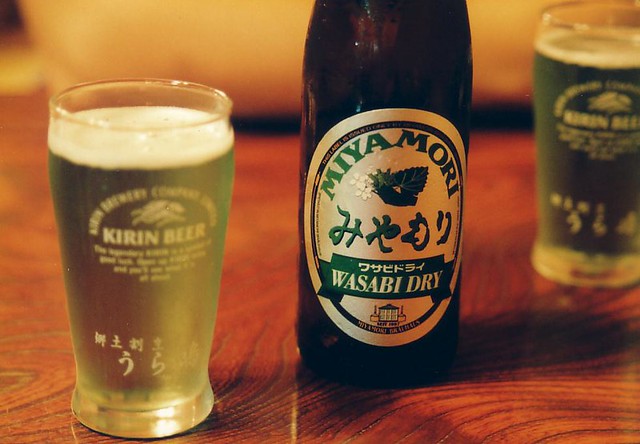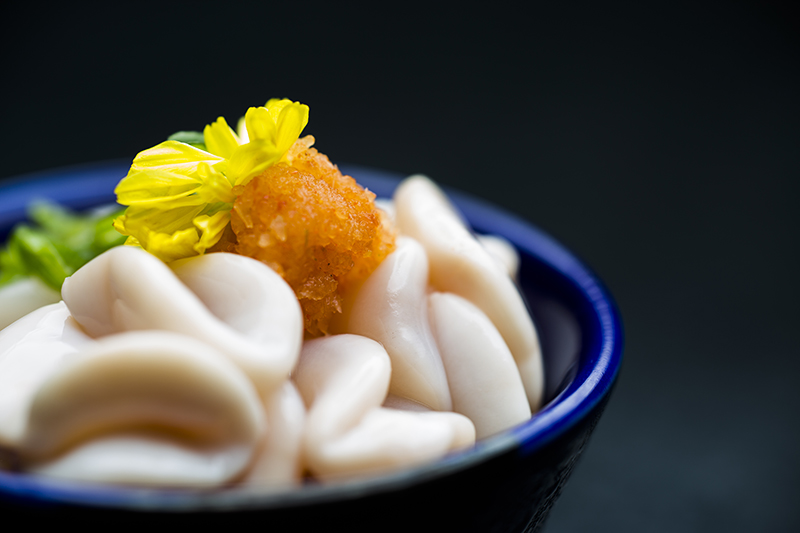Japan, the country that introduces things like the dancing
robot and automated hugging machine, is also a big fan of a few unorthodox
dishes. These 13 in our list prove that Japanese food is insane, or at least
for the most part, a bit weird.
So warning, put down anything you’re eating, because some
nasty stuff is about to pop up…
1. Wasabi Beer
This one’s an easy start for you. A wasabi kick in the face
for the world’s most loved drink.

2. Natto (fermented
soybeans)
This “delicious” Japanese snack of fermented soybeans might
look like innocent exotic baked beans, but beware! Many visitors who have
tasted, or even been in the presence of this aged concoction, warn of its
reeking scent of rotten cheese and snot-like consistency.

3. Black Burger
Fast food is a little different in the land of the rising
sun – they tend to like things a little more monotone. An all-black burger
made with squid ink is a perfect cheap eat. Well, without fries and a medium
Coke.

4. Raw chicken
The Japanese love a bit of this. While normal people would
feel brave just for eating a bit of tuna sashimi, the crazy diners in Japan go
full daredevil with completely raw chicken. That’s definitely not safe!

5. Canned bread
The vending machine is the most beloved invention in Japan.
It’s used everyday for everything, and that’s not an overstatement. So
having a bit of bread handy 24/7 is the key to living prepared for anything,
Japanese style.

6. Fugu (pufferfish)
Now this stuff is so insane, that chefs need a license to
prepare it. A pufferfish has enough poison to kill 30 adult humans, yet the
Japanese like to again, live life on the edge and snack on this as a tasty
lunch treat. Chefs only serve the “non-poison flesh” part of the fish, but
there have been cases of costly mistakes, with only a drop of its toxin needed
to seriously put you in danger. Apparently it tastes of rubber and makes your
lips numb. Yum!

7. Placenta drink
All jokes aside for this one. This is a real drink, made
from blended pig placenta. Good for the skin, apparently.

8. Basashi (raw
horse)
By the looks of it, the Japanese are big fans of raw meat
and fish. Maybe it’s the risk? Or the purity? I don’t know. But hopefully
horses don’t get along with salmonella as much as the chickens!

9. Nankotsu (chicken
cartilage)
The cartilage is something we, the west, would typically
quite happily throw away, being the nasty bits between the flesh and the bone.
But apparently it’s edible, and can even be a tasty treat when breaded and
fried Japanese style, especially after a few beers.
10. Curry ramune
(soda)
The Japanese are somewhat obsessed with curry. With fried
chicken curry (katsu kare) being a popular twist on the Indian classic, the
curry soda is instead a far more niche product to come out of Japan, less loved
by its country. It does not taste good apparently, though many major
supermarkets still stock it anyway.

11. Shirako (fish
sperm)
Sacks of cod sperm is an elegant eat over in Japan. Shirako
translates directly as “the white children”, and I suspect many a tourist
has gulped down on a few of these without knowing the sinister secret.
Never trust a restaurateur who recommends a special delicacy, whilst laughing
to himself and opening up a suspicious pouch of oddly shaped, pastier tofu.

12. Funazushi
(‘rotten’ fish)
This is one of the oldest and most traditional dishes
on this list. Food that’s been fit for emperors and samurai for thousands
of years. Three-year-old fish. It’s effectively rotten and has a stench that could
peel paint off the walls. Although, it is a heavily respected and cherished
delicacy, and like a recurring theme in this article, it’s safe to eat.
Probably.

13. Dancing squid
Whilst this squid looks very much alive, it’s not. The
squid’s dancing reaction is an automatic response to the sodium in the soy
sauce which wakes up the nerve and muscle cells in squid’s tentacles. Watch the video here!

Planning a trip to Japan? Call Airport Shuttle in Cape Town
or Durban, and we will get you where you need to be comfortably and on time!
Which of the dishes on this list would you most like to try?


No comments:
Post a Comment